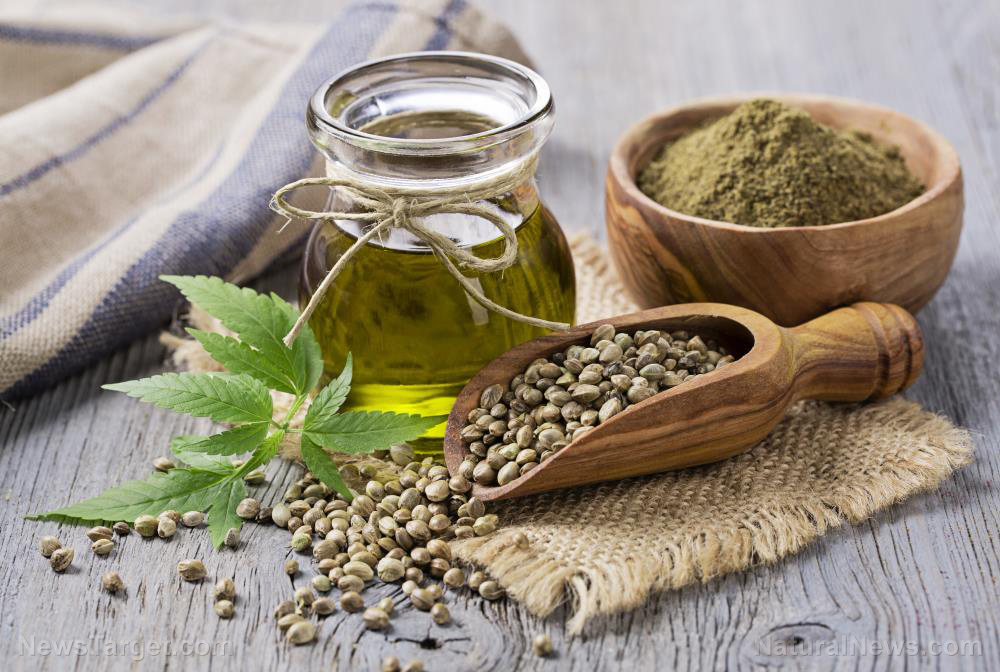Easy strategies to boost your dopamine levels naturally
09/20/2018 / By Zoey Sky

Dopamine, a major neurotransmitter, is linked to focus, motivation, and productivity. However, factors such as diet and lifestyle can deplete your dopamine levels. If you feel like you’re not living your life to its fullest, you may be suffering from low dopamine levels. Thankfully, there are natural ways to increase dopamine.
What is dopamine and why is it important?
The human brain has around 86 billion neurons, and they communicate with each other through brain chemicals known as neurotransmitters. Dopamine, one of the most widely studied neurotransmitters, is associated with various aspects of human behavior, including addictions, motivation, and pleasure-seeking. It has crucial roles in anticipatory pleasure, attention, learning, memory, mood, movement, and sleep.
On the other hand, dopamine dysfunction is behind several diseases such as Parkinson’s disease, which is caused by the death of cells that produce dopamine. Only a handful of neurons create dopamine, and these neurons are only found in a few areas of the brain.
The neurotransmitter is also used by several systems outside the central nervous system, like immune cells, the kidneys, and the pancreas. This dopamine is created locally because it’s unable to move across the brain’s protective blood-brain barrier.
Dopamine affects your daily life because it is a “motivation molecule.” This means that the neurotransmitter can boost your concentration, drive, and focus. It also controls the pleasure-reward system. It makes you feel bliss, enjoyment, and euphoria.
If you suffer from dopamine deficiency, you may feel lethargic, unfocused, and unmotivated. It can also leave you feeling depressed. (Related: Dopamine influences your decisions; scientists discover that how long we have to wait for what we want affects its value.)
Common symptoms of dopamine deficiency may include:
- Engaging in self-destructive behaviors (e.g., addictions)
- Inability to feel pleasure
- Lack of motivation
- Low libido
- Sleep problems
- Trouble concentrating
- Trouble connecting with others
A dopamine deficiency can also manifest as certain psychiatric disorders like addiction, attention deficit disorder (ADD), bipolar disorder, and depression. Dopamine deficiency may have underlying causes like addictions, obesity, a poor diet, nutritional deficiencies, thyroid disorders, and the use of dopamine antagonist drugs.

How can you boost your dopamine levels?
Activities, foods, or supplements don’t always increase your dopamine levels. In some cases, this means your dopamine levels stay the same but it is better utilized through various neurochemical changes.
Dopamine-boosting foods
There are foods that contain dopamine, but their dopamine content can’t cross the blood-brain barrier. You need a workaround for this to happen.
Dopamine is produced from l-tyrosine, an amino acid often found in protein-rich foods. By following a diet high in l-tyrosine, you can have the necessary building blocks for dopamine synthesis.
These are some of the drinks, foods, and spices that either have l-tyrosine or can help increase dopamine directly:
- All animal products (e.g., dairy, eggs, fish, meat, and poultry)
- Avocados
- Bananas
- Coffee
- Green leafy vegetables
- Nuts
- Oats
- Peanuts
- Rosemary
- Soy products
- Turmeric
- Wheat
Broad beans/fava beans contain l-dopa, a direct precursor to dopamine that is used to cure Parkinson’s. Probiotic-rich foods such as kefir, raw sauerkraut, and yogurt can help boost dopamine production.

Dopamine supplements
Here are some supplements that can also naturally increase your dopamine levels.
- Curcumin – Curcumin, the main active ingredient in turmeric, can cross the blood-brain barrier and boost dopamine levels. Buy curcumin supplements with piperine, a compound found in black pepper that boosts curcumin absorption by a whopping 2,000 percent.
- Ginkgo Biloba – Ginkgo biloba is traditionally used to treat brain-related conditions such as anxiety, depression, memory problems, and poor concentration.
- L-theanine – L-theanine is a unique compound found in black, green, and white teas. It can boost dopamine and serotonin levels. Additionally, the compound can increase levels of the relaxing neurotransmitter gamma-aminobutyric acid (GABA). L-theanine can boost your learning and recall, and it can enhance your mood.
- L-tyrosine – L-tyrosine is an amino acid that’s the precursor to dopamine.
- Mucuna pruriens – Velvet bean (Mucuna pruriens), a tropical legume, has l-dopa. Anti-aging M. pruriens supplements can boost your libido and enhance your memory, mood, and overall brain health.
- Phosphatidylserine – Phosphatidylserine is the brain’s “gatekeeper,” meaning it regulates nutrients and waste in and out of the brain.
Lifestyle changes
These lifestyle changes can also boost your dopamine levels:
- A cold shower – You can either take a cold shower or end a hot shower with a cold blast of water. Taking a shower with 14-degree Celsius (57 degrees Fahrenheit) water can boost dopamine levels by as much as 250 percent.
- Meditation – Meditating regularly can help you relax, enhance learning ability, and increase creativity. Creative hobbies like drawing, knitting, photography, and woodworking allow the brain to go into a meditative state.
- Music – Music can help release dopamine. Like eating or making love, listening to music can make the brain’s pleasure center light up.
- Regular exercise – Physical activity will raise baseline levels of dopamine via the promotion of the growth of new brain cell receptors. Gentle and no-impact exercises like tai chi/qi gong, taking walks, or yoga can also boost dopamine levels. Aim for at least 20 minutes of exercise daily to improve your mood.
- Sleep – Dopamine helps control the production of melatonin, the sleep hormone.
- Touch – Different kinds of pleasurable touch, such as a therapeutic massage or petting animals, can increase dopamine.
- Weight loss – Obese people have fewer dopamine receptors than average and their brains function the same as a drug addict’s brain does. Because dopamine controls the brain’s pleasure center, being obese means you get less pleasure and satisfaction from eating. This makes you want to eat more.
To increase your dopamine levels and stay motivated, follow a healthy diet and make the necessary lifestyle changes.
Learn more about dopamine and how it can boost your mental health at Mind.news.
Sources include:
Submit a correction >>
Tagged Under:
addiction, brain function, brain health, destressing tips, dopamine, dopamine deficiency, dopamine dysfunction, fatigue, focus, l-tyrosine, mental health, mind body science, mind-brain connection, Motivation, neurocognitive health, Neurotransmitters, Productivity, Psychology
This article may contain statements that reflect the opinion of the author
RECENT NEWS & ARTICLES
BrainHealthBoost.com is a fact-based public education website published by Brain Health Boost Features, LLC.
All content copyright © 2018 by Brain Health Boost Features, LLC.
Contact Us with Tips or Corrections
All trademarks, registered trademarks and servicemarks mentioned on this site are the property of their respective owners.





















